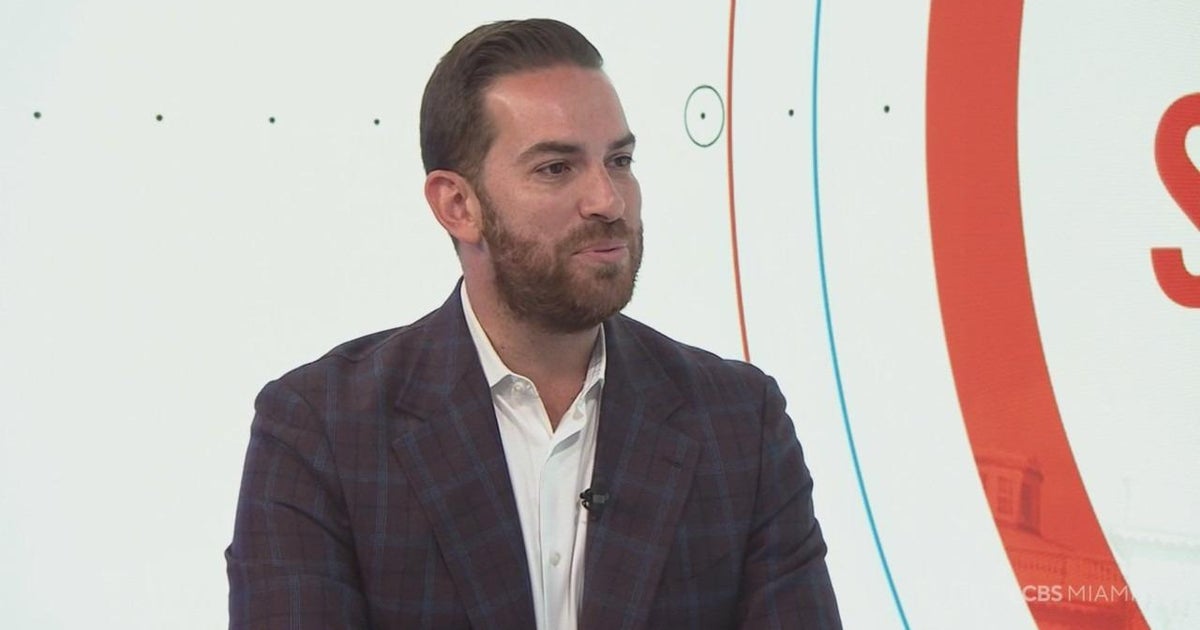COVID Vaccine 'Passport' Ban Clears House
TALLAHASSEE (CBSMiami/NSF) – With a key lawmaker saying he recognizes that vaccine hesitancy is "real and understandable," the Florida House on Wednesday approved a measure that would limit local emergency orders and make permanent Gov. Ron DeSantis' executive order barring COVID-19 vaccine "passports."
The House voted 76-40 to approve the proposal (SB 2006), which Pandemics & Public Emergencies Committee Chairman Tom Leek, R-Ormond Beach, said would prepare Florida for the next public-health emergency while striking a "delicate balance between protecting people and protecting people's civil liberties."
"We have vaccines, through some miracle of science, that work. We also must recognize that COVID-19 vaccines don't have the same proven history as the same vaccines we require our schoolchildren to get," Leek said. "We must recognize that vaccine hesitancy is real and understandable. Don't get me wrong. For all of you in this room, for all of you who are listening out there, get vaccinated. Please get vaccinated. Let's return to normal. But recognize that it is fair for a certain segment of our community to be hesitant about getting the vaccine."
Democrats countered that the measure would delay Florida's ability to return to normalcy during the COVID-19 pandemic. COVID-19 passports could be used to show people have been vaccinated before entering places such as businesses or schools.
"I don't know many people who are going to get on a cruise if they don't have the security of knowing that the other people on that cruise with them, in that close environment with them, have also been vaccinated," Rep. Omari Hardy, D-West Palm Beach, said.
"If you care about our business community as certain elected officials in this state say that they do," Hardy continued, "if you care about keeping Florida open, and making sure that we're not losing jobs due to the pandemic, why would you prevent people from enacting policies that give their customers the assurance, the confidence that they can walk into a business, and that they'll be safe?"
The Senate passed the bill last week, but the measure needs to return to the Senate because of changes made by the House.
DeSantis on April 2 issued the executive order blocking COVID-19 passports, which he said would create "huge" privacy issues that could result in people handing over medical information to a "big corporation."
"It's completely unacceptable for either the government or the private sector to impose upon you the requirement that you show proof of vaccine to just simply be able to participate in normal society," DeSantis said before signing the order. "If you want to go to the movie theater, should you have to show that? No. If you want to go to a game, no. If you want to go to a theme park, no. … I think it's something that people have certain freedoms and individual liberties to make decisions for themselves."
Hardy contended the bill "hamstrings" local governments rather than holding the governor and other people accountable for using existing powers to keep people safe.
The bill would prohibit businesses, schools and government entities from requiring customers to show documentation certifying COVID-19 vaccinations or post-infection recovery.
Rep. Michael Grieco, D-Miami Beach, said the bill panders to anti-vaxxers and conspiracy theorists.
"The irony is that this bill would grant rights to the people who have not been vaccinated, but it doesn't protect me," Grieco said.
Rep. Mike Beltran, R-Lithia, said people who are vaccinated shouldn't be worried about what others are doing.
"If you took the vaccine, the vaccine works, and you go into the restaurant, you go into the bar, you go to the store, you go to the sporting event, and you go in there and someone else didn't take the vaccine, why do you care?" Beltran asked. "And if the vaccine doesn't work, in other words, you're afraid you're still gonna get it, even though you've been vaccinated, and you're afraid you're going to get really sick, then why are you trying to force other people to take a vaccine?"
In addition to barring COVID-19 passports, the measure would require local emergency orders to be narrowly tailored and to be extended in seven-day increments for a total duration of 42 days. Currently, such orders can be issued initially for seven days and extended indefinitely in seven-day increments.
The bill would give the governor power to override local orders if they are determined to "unnecessarily restrict individual rights or liberties."
Among other aspects of the bill, state agencies would be required to develop by the end of 2022 public health emergency plans and the Division of Emergency Management would have to stockpile personal protective equipment.
(©2021 CBS Local Media. All rights reserved. This material may not be published, broadcast, rewritten, or redistributed. The News Service of Florida's Jim Turner contributed to this report.)



